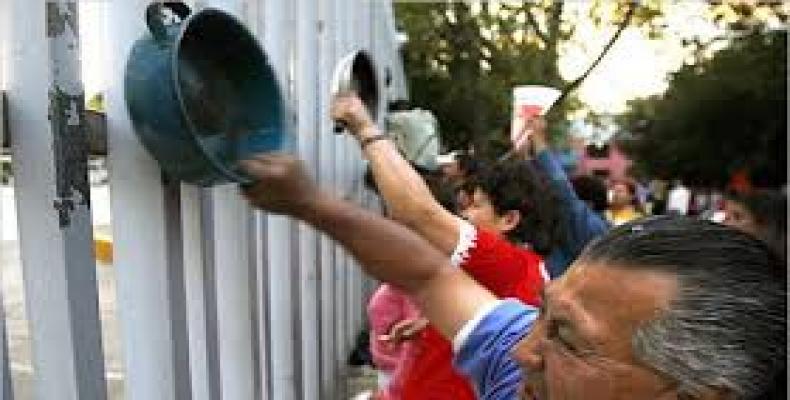Buenos Aires, November 16 (RHC)-- A report published by an Argentinean non-governmental organization has concluded that women are most affected by rising inflation, poverty, low-quality employment and budget cuts.
“Women are among the most affected by austerity policies,” Argentina’s Center for Political Economy concluded in a recent report, which shows Argentinean women have been severely impacted by the economic measures taken by President Mauricio Macri.
The report explains that the 27.3 percent increase in poverty during the first six months of 2018 is disproportionately affecting women because “60 percent of impoverished households with minors are single-parent homes headed by women.” The Universal Allocation Per Child (AUH) cash transfer program for the most vulnerable families was designed to protect these households, however inflation and the devaluation of the Argentinean peso has caused a net loss of 13 percent of the beneficiaries’ purchasing power, CEPA explains.
The report also criticizes the recently proposed “Law for Gender Equality,” arguing the bill presented by the government party is focused on the goal of having “equal pay for equal tasks” when the pay gap of 27 percent that affects women actually stems from an unequal access to employment and the feminization of domestic unpaid work.
“The starting point is unequal… Women have more access to non-registered work and to professions in the care economy that are penalized with lower remuneration,” the report contends.
An additional element that affects Argentinean women particularly is that the 2019 budget, recently approved by the lower house of Congress, includes a cut of 19 percent (in terms of real value) of the budget designated for programs with a gender perspective.
CEPA has also confirmed an alarming “under-execution of the 2018 budget,” especially in state programs related to women, like the Reproductive Health Development and Responsible Reproduction Program which only spent 24.2 percent of the budget allocated for it in 2018.


